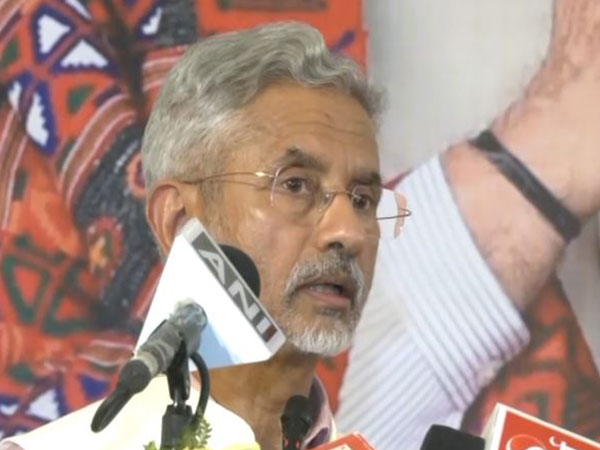External Affairs Minister S Jaishankar said after the COVID-19 pandemic, the world realized the risks of relying too heavily on China and this presents India with the opportunity to bring global business in the country.
While speaking at an interaction with intellectuals in Shimla on Tuesday, Jaishankar said, “One thing is that today, especially after COVID-19, the world wants that everything should not be dependent on China. They saw during COVID-19 that very ordinary things had to be imported from China. And at that time, you know, during Covid, the entire international trade was stopping.”
“So today, there is a democratization of the economy in the world. They want to increase production in different countries and regions so that everyone doesn’t have to go to China,” he added.
Highlighting the digital sector as a new opportunity for attracting global business to India. He emphasized that stability, leadership, good governance, and trust are key for the world to choose India as a business destination after COVID-19.
“So I think today there is a new opportunity that we can bring the business of the world to India. And the world will come when the world will feel that there is stability here, there is leadership here, there is good governance here, here is the understanding of the world, and here the world can trust India. What is the future business?” said Jaishankar.
Following this, Jaishankar also emphasized that India’s development must be inclusive, ensuring that progress benefits everyone equally, citing “India will only develop when it is a co-existent India.”
He further stressed that no states or groups should be left behind, advocating for a balanced approach to development across the entire country.
“India will only develop when it is a co-existent India. It should not happen that some people move forward and many people stay behind. It should not happen that one or two or five states get the benefit of development and 15 states do not get the benefit. So all this, what we call, everyone’s co-existence, everyone’s development, how do we bring this co-existence, everyone’s development to the ground,” said EAM.
Further, EAM also mentioned G20 and unscored that the Prime Minister has opted to decentralize the responsibility by organizing G20 programs in every state, rather than confining it to Delhi. This approach resulted in significant benefits, with nearly one lakh foreign delegates visiting India during the G20 meetings.
“The Prime Minister of India decided that he would not keep this responsibility in Delhi, he would take it out of its borders. He would organize a G20 program in every state. And here we had two or three programs. Now you see the benefit of this, that during the G20, almost one lakh foreign delegates came to India,” said EAM.
“So, it is a place where the world was not aware of it before. So, we expect that after G20, we will see that tourism is very big,” he added.
Additionally, EAM also added about Sri Lanka’s situation and stated, “When Sri Lanka was sinking…one country that came ahead and came on time and showed the result, that was India. So this is our image.”
“That is why we proudly say, India first. That if India is beneficial, we will never bow down or suppress. But our duty is also that of human welfare. That if it is climate, or if it is a matter of climate, or if it is a matter of terrorism, or like nowadays in the Red Sea, our many navies…Navy ships are being deployed there.” Jaishankar added referring to the deployment of Indian Navy ships to secure the shipping routes amid Houthi attacks in the Red Sea.-ANI


